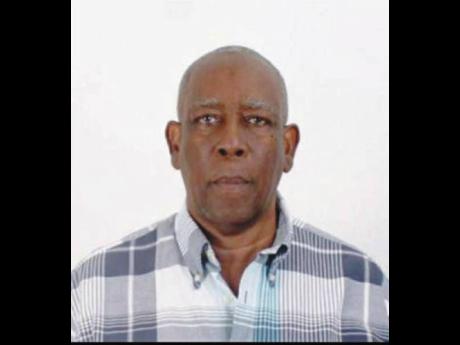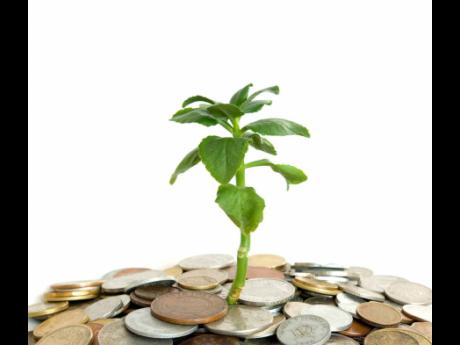Glenn Tucker | Tools for economic recovery and sustainable development
Finance Minister Dr Nigel Clarke recently highlighted the urgent need for jobs and hard currency. He hopes to address this problem by aggressively diversifying the economy. This should not surprise those of us who have developed a huge reservoir of respect for PM Holness’ latest find.
At the end of every football match, our coach – the late, great Freddie Green – would review with the team what went wrong and what was required to do better next time. Only the myopic and simple minded could emerge from a pandemic without doing some serious soul searching.
I have always been of the view that unlike those who point to ‘corruption’ and ‘stupidity’ for our challenges, sometimes the gifts of nature can turn out to be poisoned chalices. Because of this, we have what can be described as a resource-based economy.
And how is this resourced-based economy performing? Tourism, one of our ‘boom or bust’ industries, is now in a bust phase, and thousands are out of work. Our banana industry is on overdrive and sugar is seriously hypertensive. Coffee is coughing badly, and the bauxite industry is like a perfidious lover that always returns with her own health risks. I say that because this industry is seen as an economic lifesaver. But it accounted for 18 per cent of the economy in the 1970s and only two per cent two years ago.
Thirty-three years ago, a UWI research said this in the report on the industry, “… The landscape has been damaged, valuable agricultural soils have been replaced by badly eroded skeletal soils capable of sustaining only grass production … the alienation of land from agriculture and the emigration of peasant farmers led to losses, not only in productivity, but in human skills and crop genetic resources … the level of inputs required for successful agriculture on these reclaimed lands precludes their return to traditional small farming systems … .”
HEALTH PROBLEMS
Bauxite contains aluminium hydroxide, iron oxide, titanium oxide, and reactive silica. Early, easily recognisable health problems are pain, coughing, and itching eyes. No attempt, however, is made to sensitise residents to possible neurological problems such as chronic brain syndrome, anxiety, forgetfulness, Alzheimer’s and Parkinson’s, heart and liver problems.
Centuries ago, the plan was for countries in our region to use slave labour to produce primary products that would be sent to Europe for manufacturing. Today, we are poor, and Europe is rich. To ensure that everyone understands, take a fisherman who invests in a boat, engine, fuel, other equipment then takes the hazardous journey out to sea to catch fish. The vendor waits, buys the fish, and sells it at a huge profit. That’s where the money is.
So resource-based activities usually end up with diminishing returns – proportionally smaller profits or benefits from something as more money and energy is invested in it while science-based ones results in a reduction in cost per unit because of increased production. The diminishing returns that typify what we are doing seem to lock resource-based nations into a low-productivity and low-wage trap, and the result is unsustainable development.
Albert Einstein said, “We cannot solve our problems with the same thinking we used when we created them.” This is why I would, respectfully, recommend to the minister that we nurture, harness, and harvest the intellectual capacities of our people to achieve the prosperity he seeks for us. Marry STEM and technical schools to relevant industries. None of the world’s billionaires earned their billions from planting anything. If space permitted, we could go back to the Bible for examples. But 400 years ago, Italian philosopher and economist Antonio Serra made the comparison between the wealth of Venice – having no natural resources - and the poverty of Naples and Sicily, being very rich in natural resources.
INNOVATE
We could import bananas from some Central American countries, export them, and make a bigger profit than producing them here. Why are we planting bananas? It is possible to produce a sugar substitute in a lab that is 300 times sweeter than sugar from cane. Why are we planting sugar cane? Well … we do need the rum. That’s critical. When asked to explain its economic superiority over Italy and the rest of Europe, resource-poor Japanese replied, “We cannot live off the natural resources, so we have to create a living by transforming the natural resources of other countries.” This humble response coming from what is now the third-largest economy in the world, which also contributes six per cent of the world’s GDP. When Holland was described as a “swampy little corner of Europe”, looming poverty pushed it to become traders, manufacturers, and bankers to the rest of Europe.
For those who have never been to any of these places, let me mention what appears as three little specks on any map: The Cayman Islands. We administered them in the 1960s, and some of their leaders attended college with me in Jamaica because they had no tertiary institutions. Thank God they have nowhere to plant sugar and bananas. There are now 212 banks there. Some 40 of the world’s 50 largest banks hold licences there. It is also one of the leading jurisdictions for captive insurance in the world.
Imagine the attractiveness to potential investors if we could develop a limitless supply of renewable, non-contaminating energy from geothermal, solar, and wind sources. We are all proud that we can run. Let us start running businesses – big businesses.
This is why I am asking the Government to consider the intelligent and humane application of science and technology to achieve the sustainable development we have waited decades to see.
- Glenn Tucker, MBA, is an educator and a sociologist. Send feedback to glenntucker2011@gmail.com.


